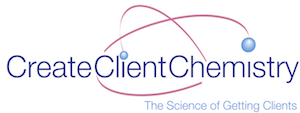 It doesn’t matter how you look at it: pricing your services can be a difficult task.
It doesn’t matter how you look at it: pricing your services can be a difficult task.
The good news is you have some flexibility in how you set your prices.
The bad news is there is no true formula you can just pull off the shelf and apply in your business.
Pricing your services involves part number crunching, part experience and part guesswork.
But however it may be, below are 7 key factors that you can take into account for setting the best rate for your services.
1. How Much Do “You” Cost?
How much is your blood, sweat and tears worth? Think about it: by being self-employed, you are also incurring an opportunity cost by NOT making yourself available elsewhere for a dependable salary or receiving a nice benefit package from an employer. Please, don’t get me wrong on this. Being an entrepreneur was one of the best decisions I made in my life, but it is good to bring things into a “financial” perspective by thinking about what you are “giving up” and what you are “gaining” by being self-employed.
2. Your Business Running Costs
When setting your rates, you need to figure in all your business expenses and running costs. If you don’t, you might price your services at a rate that does not produce a profit in the end. Ensure you factor in all the hidden costs of your business like insurance, taxes and invoices that might not get paid for one reason or another.
3. Your Profit Percentage
Somewhat related to your costs, think about how much money you want to make above breaking even. This is business after all.
4. Market Demand
If what you do is in high demand, e.g. a lot of people are searching for these services it can positively impact on your rates and you can easily increase your fees.
5. Industry Standards
It’s sometime hard to know what others are charging for the same or similar services you deliver. But try asking around. The more you know about industry standards, the better you’ll know how to position your business in the market. As a solo entrepreneur, it is however never a good idea to position yourself below the market to try and win clients based on price.
6. The Value You Add to Your Clients.
Think about the value that a client will receive from working with you. How will working with you benefit or positively impact their lives and/or business? Set your rates accordingly.
7. Your Niche and Target Audience.
Your niche and target market can impact your rates. For example, think about the difference between Revlon and Chanel: Both companies make perfume but Chanel targets a small niche market of elite clientele and thus charges a high price for their products while Revlon targets a broader market and thus offer their products at a more affordable rate. Figure out how you are positioning yourself and use it to determine your rates.
In the end, all these intangible factors can have an impact on pricing your services and it is important to think about them as they can help you determine the real “worth” of the services you deliver.
Once you’ve decided on a price, continue to test the market and remember to raise your rates from time to time.
In the end, how you price your services could be the difference between a profitable and thriving business or a struggling one.
So go out there and charge what you are worth!
Now, I want to hear about you and what you think about rates. Tel us in the comment box below which of these factors you’ll use to price your services in future.
PS: “If you feel someone else can benefit from this list of factors, you are welcome to share this with others. It’s really easy! Just use the buttons below. Thanks!”




